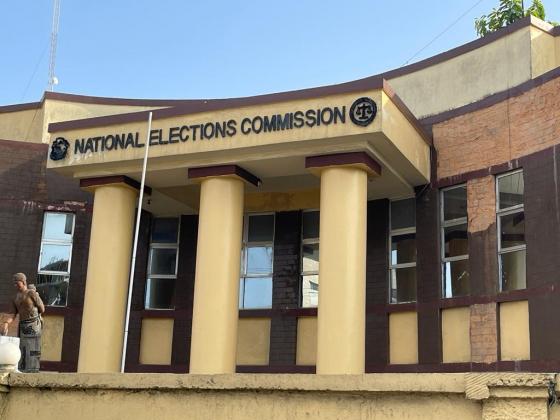Liberia: NEC Says Stakeholders Consultations Important for 2023 Elections

— “NEC is aware that elections are the central part of democracy, and a credible voter roll will serve as a strong foundation for a free, fair, and credible election in October,” Reeves added.
The co-chairperson of the National Elections Commission (NEC) has disclosed that regular stakeholders consultation and dialogue remain key for a transparent and credible election in October.
Cllr. Teplah Reeves noted that dialogue with election stakeholders serves as an important medium through which important ideas and misconceptions are resolved.
The NEC Co-chairperson made the remarks when she opened a stakeholders’ dialogue on the impending biometric voter registration in Buchanan, Grand Bassa County over the weekend.
The dialogue brought together more than 200 participants from the six counties of the first phase of the BVR (Gbarpolu, Bomi, Bassa, Cape Mount, montserrado, and Margibi).
The stakeholders included youths, women organizations, elders, superintendents, the Liberia National Police, and the media.
The NEC is transitioning from the outmoded optical mark recognition to biometric beginning on March 20, which Reeves claims “will clear the way for an inclusive and transparent election in October.”
The NEC, unlike previous voter registration exercises, will introduce the biometric form of registration whereby unique physical human information, such as fingerprints and standardized photographs, will form part of the information taken during the registration.
“NEC is aware that election is the central art of democracy and a credible voter roll will serve as a strong foundation for free, fair, and credible election in October,” Reeves added.
“[Also] the election management body and the people must work together to drive the process with the aim of keeping the peace. NEC needs all hands on deck to ensure the successful implementation of the impending biometric voter registration exercise.”
The dialogue on the biometric form of registration set forth the platform where Liberians of all walks of life shared notes and got firsthand education on the workings and benefits of the new technology.
The Commission also demonstrated at the dialogue step-by-step processes of the biometric voter registration, especially for the purposes of attracting the full participation of first-time voters.
Participants were made to physically participate in a mock registration exercise where their temporary voting cards were printed out.
The Buchanan dialogue, the Commission believes, has reduced the falsehoods and misconceptions of some segments of the voting population in the Country.
“The NEC is under an ethical and national obligation to educate the citizenry on the new technology, which replaces obsolete optical mark recognition,” Reeves said.
Unlike the old system, the biometric system will make deduplication of the voter roll easier and faster. It will discourage double registration or unscrupulous attempts to vote more than once and the infamous issue of “trucking”.
The NEC will conduct the biometric voter registration in two phases, which run from March to 11 May.
Phase one (Montserrado, Bomi, Cape Mount, Bassa, Margibi, and Gbarpolu Counties) will run from March 20 to April 9, while phase two (the rest of the nine counties) begins on April 21 to May 11.
Participants of the Buchanan dialogue were drawn from the six counties of the first phase of the biometric voter registration.
Meanwhile, the NEC Ahead of the historic transition has already commenced elections of election magistrates and other staff, both at headquarters and in the field.
The other training will be followed by the electoral supervisors and then temporary staff)
